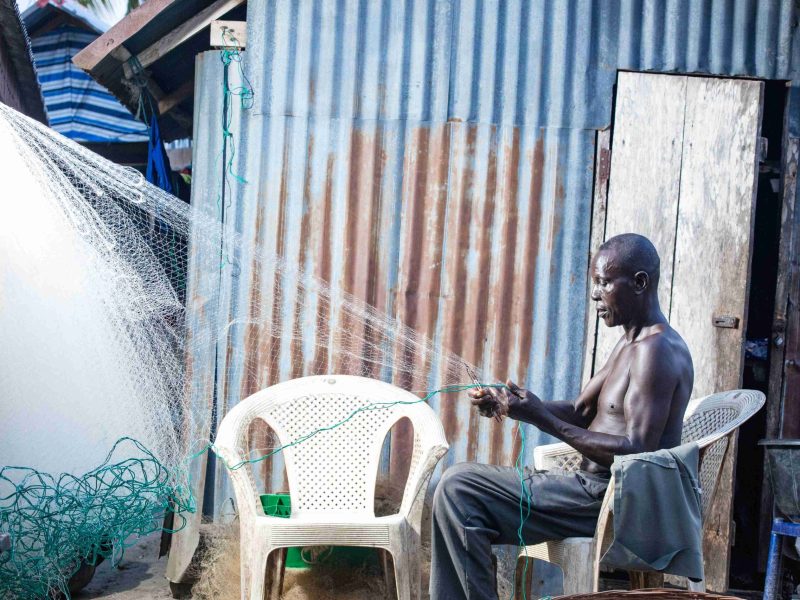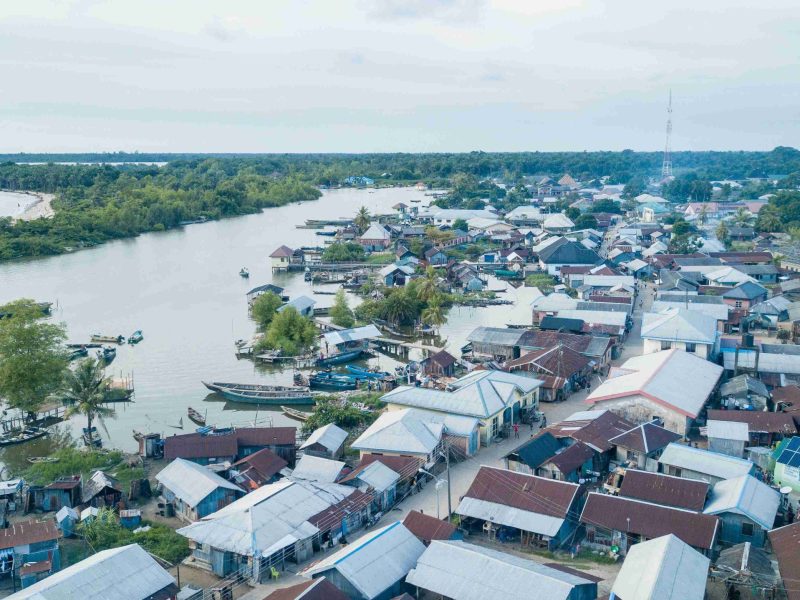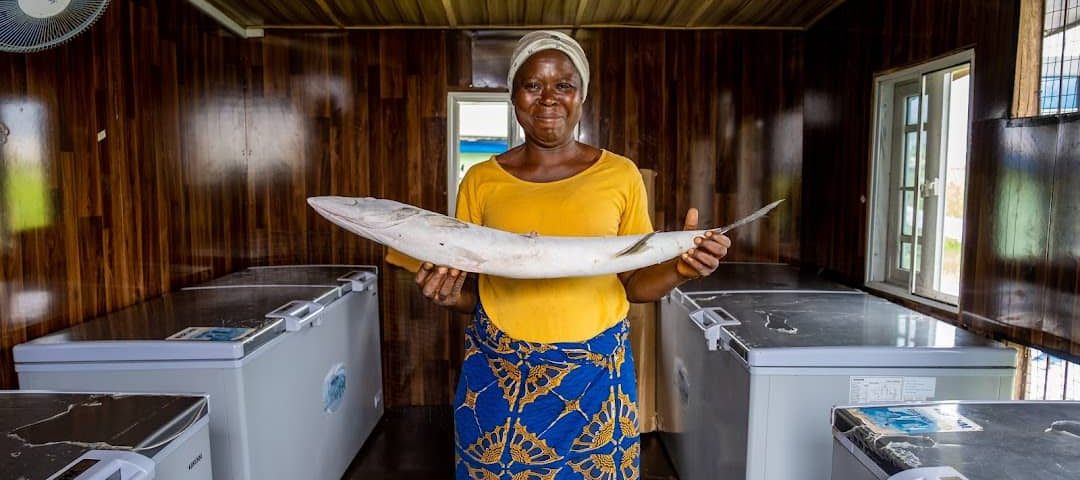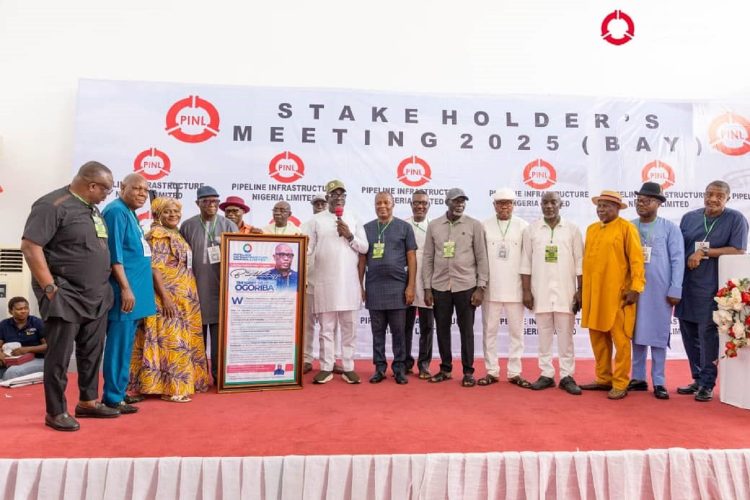
Championing Change: PIND’s Andrew Banigo Takes the Niger Delta to the World Stage at the Global Shapers Summit 2025
July 20, 2025
NDLink Champions Youth Empowerment at The Bridge Leadership Foundation’s 15th Career Day Conference
August 7, 2025With solar-powered cold rooms and improved chorkor ovens, grassroots innovation is transforming fish preservation, reducing waste, and boosting rural incomes across the Niger Delta.
In many riverine communities across the Niger Delta, smallholder fisherfolk have long struggled with a critical challenge: preserving their catch. During peak fishing seasons, fisherfolk depend heavily on their harvests to generate income and support their families. But without access to cold storage, a significant portion of their fish spoils before it can be sold. This problem affects not only income stability but also food security, especially for women, who dominate the fish processing segment of the value chain.
Thanks to innovative, community-led interventions driven by the Foundation for Partnership Initiatives in the Niger Delta (PIND) and its partners, that narrative is changing.
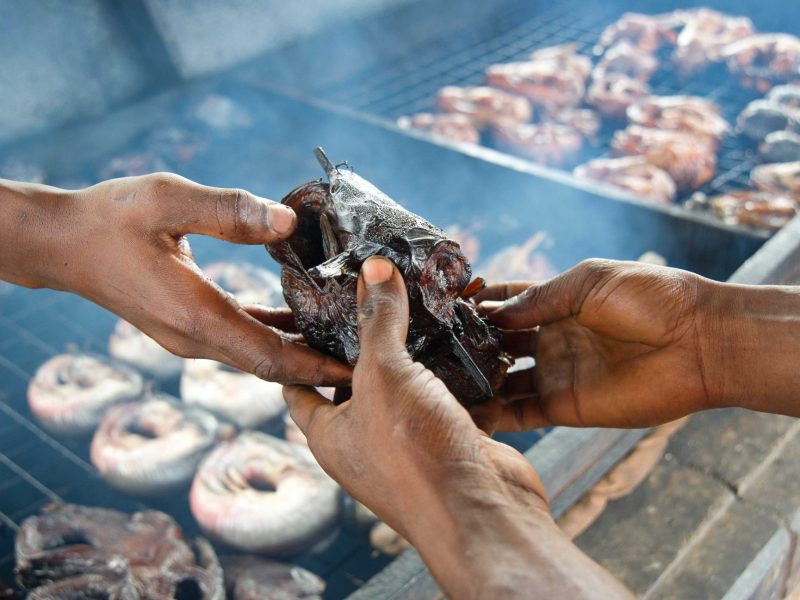
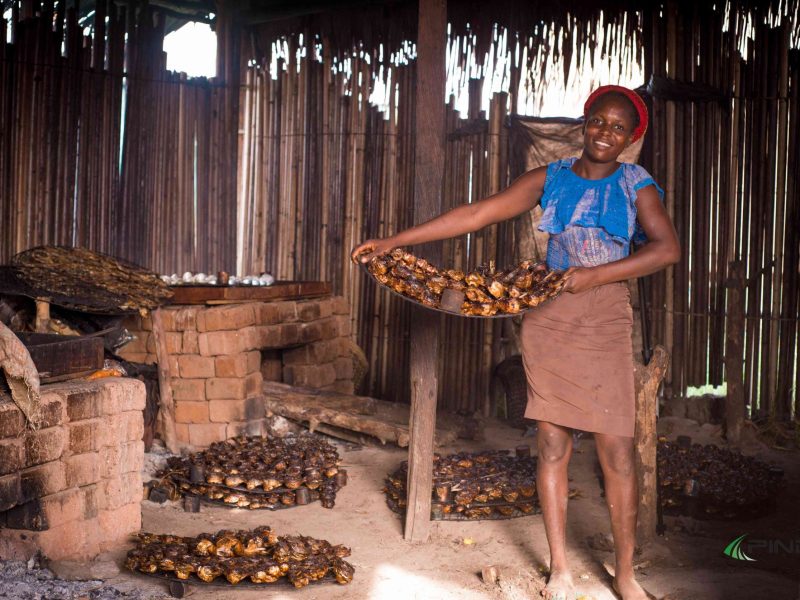
Grassroots Innovation, Powered by Renewable Energy
At the heart of this transformation are solar-powered cold storage hubs, purpose-built for off-grid, riverine communities. Through its Access to Energy (A2E) project, PIND has deployed these systems in Delta, Bayelsa, and Ondo States, helping fisherfolk preserve their catch immediately after harvest, dramatically reducing spoilage and enabling access to higher-value markets.
These innovations go beyond installation. PIND ensures sustainability through partnerships with local organizations that provide ongoing maintenance and train community members in equipment use and upkeep. This model ensures that technology adoption is effective and long-lasting.
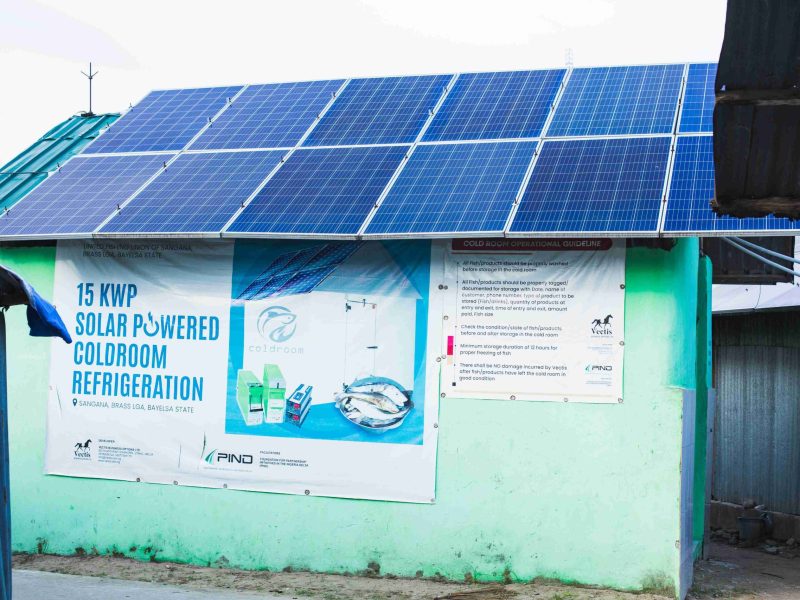
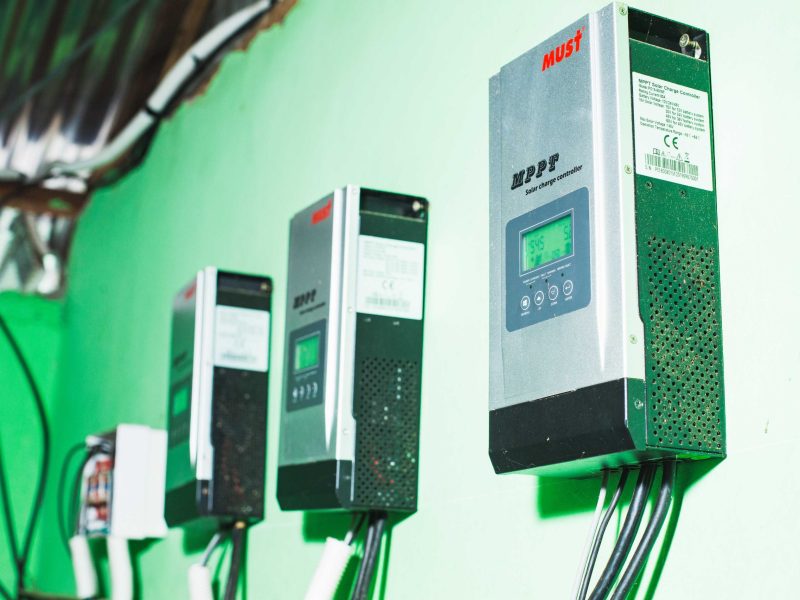
In 2020, for example PIND partnered with Vectis Business Options Limited to install commercial solar refrigeration units in Sangana and Fishtown communities in Brass Local Government Area (LGA), Bayelsa State. These facilities have since helped fisherfolk reduce business costs by eliminating expensive, traditional preservation methods while improving product quality and profitability.
PIND also extended this model to Akinsolu in Ondo State through a collaboration with Solaviva Ltd, equipping the community with off-grid cold rooms that keep fish fresh, minimize waste, and raise household incomes.
New Partnerships, New Possibilities
Today, PIND is scaling this success with new partners:
- SolarCool Ltd is expanding the cold hub model to more communities, ensuring broader year-round access to storage and market opportunities.
- Eja-Ice is taking innovation a step further by aggregating surplus fish and connecting communities to markets beyond the Niger Delta. This transforms cold storage into a gateway for regional economic expansion and export readiness.
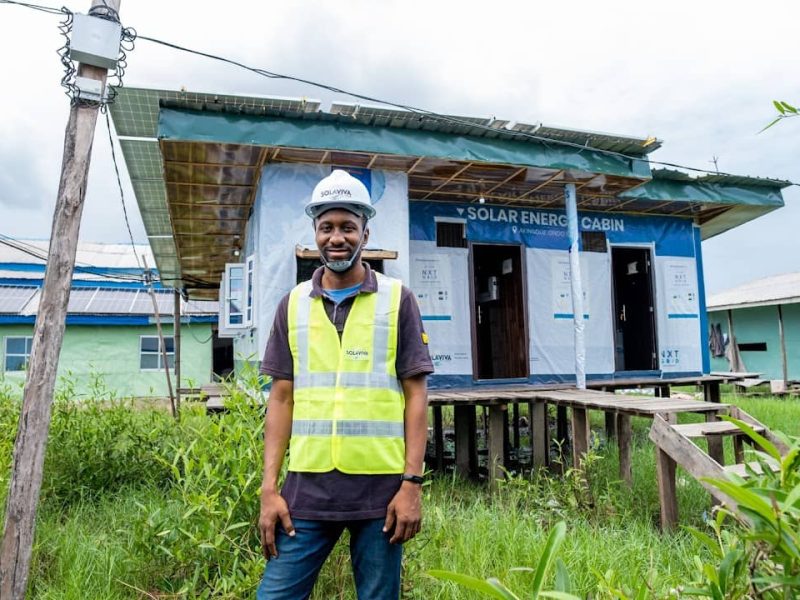
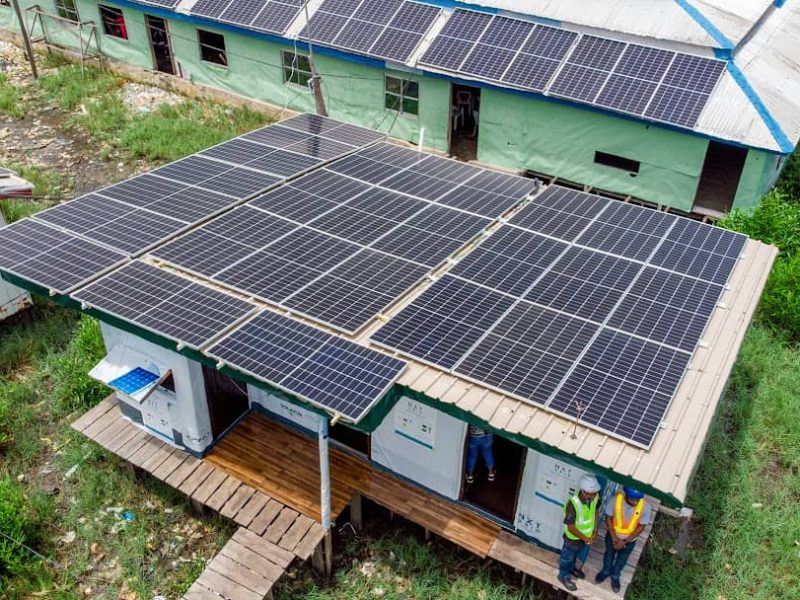
Traditional Techniques, Reinvented: The Chorkor Oven
Not all solutions need to be high-tech. In communities across the Niger Delta, the chorkor oven, a tiered, wood-fired fish dryer, offers a low-cost, high-impact alternative to traditional open-pit smoking.
Compared to conventional methods, chorkor ovens:
- Dry fish more evenly and hygienically
- Reduce exposure to harmful smoke
- Use less firewood and process larger volumes faster
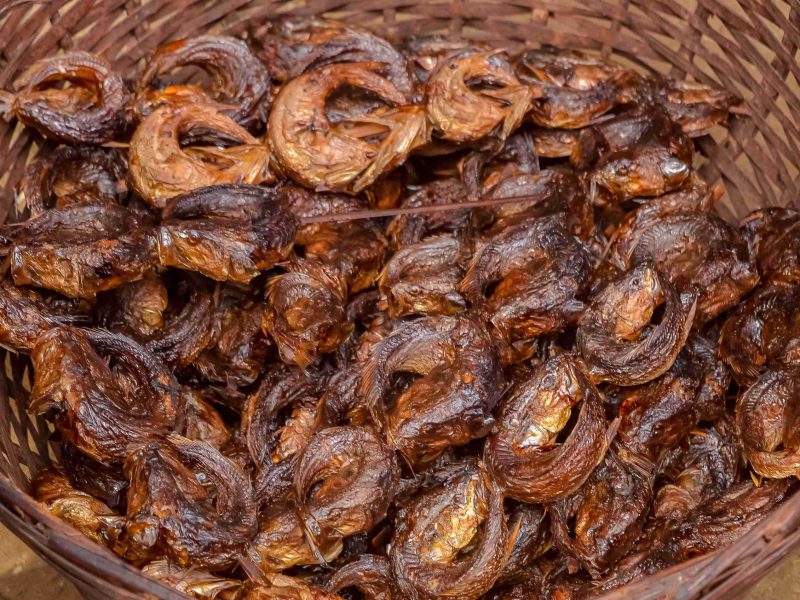
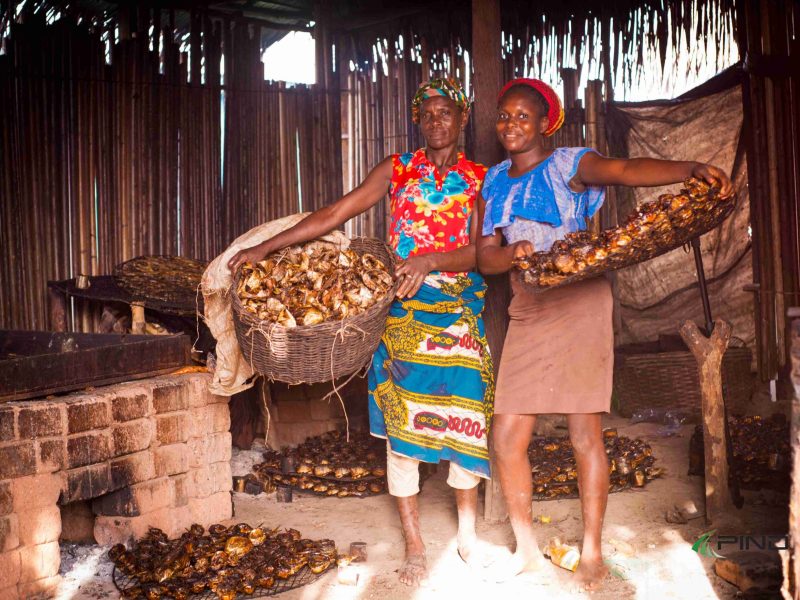
Building a Resilient Food System
PIND’s broader goal is to build a resilient and inclusive food system in the Niger Delta—one in which smallholders can protect, preserve, and profit from what they produce.
Beyond fish, PIND is exploring solar drying for vegetables, low-cost grain storage, and other preservation tools that help rural communities reduce food waste, boost incomes, and strengthen local food security.
Curious to learn more? Visit: https://pindfoundation.org/project/access-to-energy
